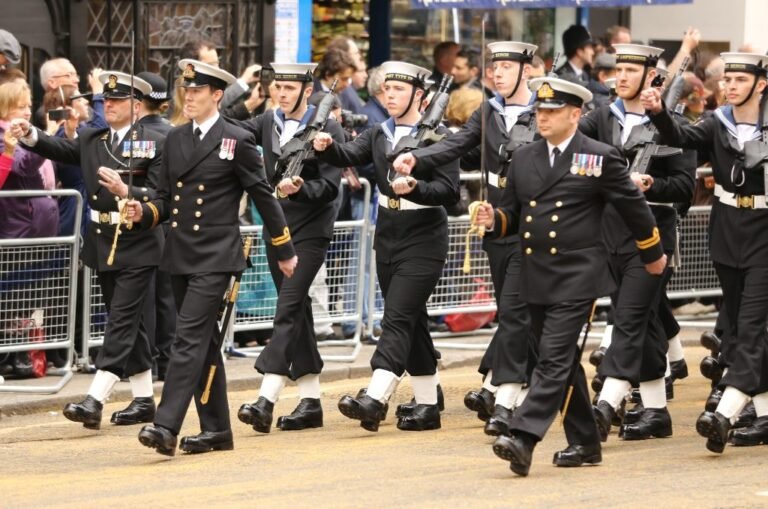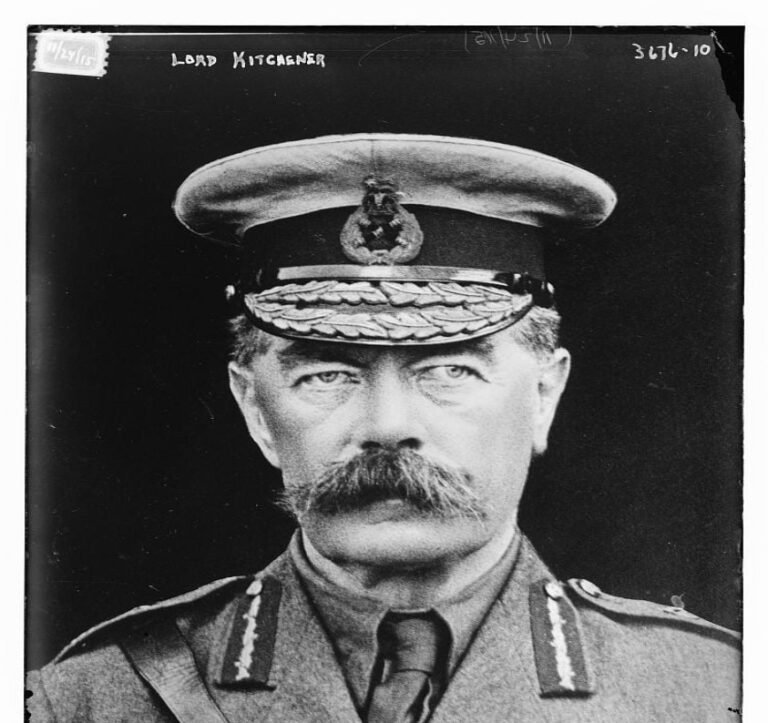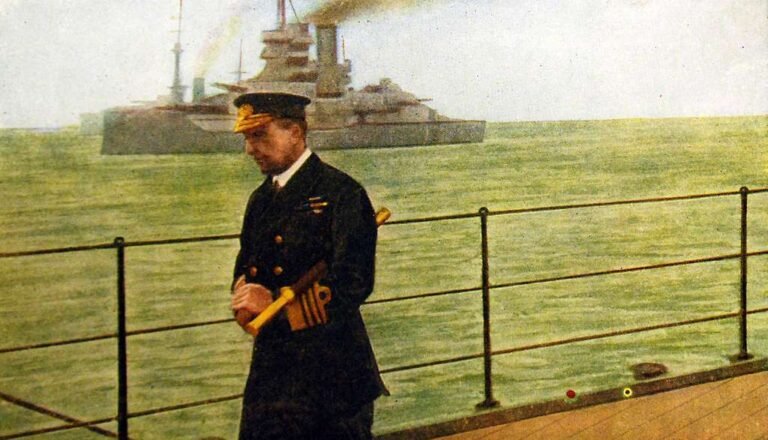Admiral Nelson is a legendary figure in naval history. His name evokes images of bravery and leadership.
But who was Admiral Nelson, and why is he so famous? Admiral Horatio Nelson is one of Britain’s greatest naval heroes. Born in 1758, he rose through the ranks to become a celebrated admiral. His strategic genius and daring tactics led to many victories, especially during the Napoleonic Wars.
Nelson’s most famous battle, the Battle of Trafalgar, cemented his legacy. Despite losing an arm and an eye in earlier battles, he led his fleet to a decisive victory against the combined forces of France and Spain. His leadership and sacrifice made him a national hero, and his legacy continues to inspire. In this blog, we explore the life, battles, and enduring legacy of Admiral Nelson.
Early Life And Background
Admiral Horatio Nelson, a name synonymous with naval prowess, had an intriguing early life. Understanding his beginnings offers insight into the making of this maritime legend.
Family Origins
Nelson was born on September 29, 1758, in Burnham Thorpe, Norfolk, England. His father, Edmund Nelson, was a modestly positioned parish rector. The Nelson family lived a humble but respectable life.
Horatio’s mother, Catherine, bore eleven children, of which Horatio was the sixth. Catherine’s untimely death in 1767 left a significant impact on young Nelson, shaping his resilience.
Early Influences
Nelson’s early influences were pivotal in his future naval career. At age 12, he joined the Royal Navy, inspired by his uncle, Captain Maurice Suckling. Suckling’s mentorship and guidance were crucial during Nelson’s formative years.
As a child, Nelson showed signs of determination and bravery. One story recounts how he once trekked through snow to visit his grandmother, showing early signs of his enduring spirit.
What inspires you from Nelson’s early life? Could it be his resilience after his mother’s death or his determination that led him to join the navy so young?
Naval Career Beginnings
Admiral Horatio Nelson is a name synonymous with naval excellence and heroic endeavors. His journey from a young boy with dreams of the sea to one of the greatest naval commanders in history is nothing short of inspiring. Let’s dive into the early days of Nelson’s naval career.
First Voyage
Nelson’s first voyage was aboard the HMS Raisonnable at the tender age of 12. He was driven by a passion for the sea, despite his frail health and young age. Imagine the courage it took for a young boy to leave home and venture into the unknown waters.
He quickly proved his mettle, earning respect from his peers and superiors. It wasn’t just about sailing; Nelson learned navigation, discipline, and leadership. These skills laid the foundation for his future successes.
Have you ever wondered what it takes to turn dreams into reality? Nelson’s first voyage is a testament to the power of determination and passion.
Initial Battles
Nelson’s first taste of battle came during the American Revolutionary War. He served on several ships, including the HMS Lowestoffe and HMS Bristol. His bravery and tactical acumen shone through, even in the face of adversity.
One notable engagement was the Battle of San Juan in 1780. Nelson led a daring assault, showcasing his fearless nature and strategic mind. This battle was a turning point, cementing his reputation as a formidable leader.
Can you imagine the pressure of commanding a ship in the heat of battle? Nelson thrived under such conditions, always pushing himself and his crew to excel.
Nelson’s early naval career is filled with lessons on courage, leadership, and resilience. Whether you’re facing your own challenges or aiming to achieve your dreams, Nelson’s story offers valuable insights.
Rise Through The Ranks
Admiral Nelson’s rise through the ranks is legendary. He displayed remarkable leadership and naval skills. His victories shaped British naval history.
Admiral Nelson’s rise through the ranks is a tale of perseverance, bravery, and tactical brilliance. His journey is a source of inspiration and a lesson in the importance of resilience and strategic thinking. Let’s dive into the key stages of his ascent in the Royal Navy.
Key Promotions
Nelson’s career began at the young age of 12 when he joined the Royal Navy. His first significant promotion came when he was just 20, becoming a lieutenant. This promotion was a testament to his dedication and potential.
Another crucial step was his promotion to captain at the age of 20. This early promotion was due to his demonstrated leadership and strategic prowess. Imagine being trusted with such responsibility at a young age. It’s a reminder that age is just a number when it comes to showing capability.
Each promotion was a stepping stone, leading to greater responsibilities and opportunities to showcase his skills. How do you leverage your milestones to propel yourself forward?
Notable Commands
Nelson’s first notable command was the HMS Agamemnon, which he took over in 1793. This was a challenging ship with many problems. Under Nelson’s command, it became one of the most effective ships in the fleet.
Commanding the HMS Captain in 1797, Nelson led his crew to victory in the Battle of Cape St Vincent. His bold tactics and fearless leadership were evident here. Nelson’s success in this command solidified his reputation as a formidable naval leader.
His most famous command was at the Battle of Trafalgar. Nelson’s innovative tactics led to a decisive victory, even though it cost him his life. His leadership style was hands-on and inspirational, leaving a lasting legacy. How can you apply such hands-on leadership in your own life?
Nelson’s rise through the ranks is a testament to the power of strategic thinking and resilience. Reflect on your journey and consider how you can take bold steps in your own career.

Credit: en.wikipedia.org
The Battle Of The Nile
The Battle of the Nile was a defining moment in naval warfare. It showcased Admiral Nelson’s brilliance and changed the course of history. This battle is a must-study for anyone interested in military strategy.
Strategic Importance
Nelson understood the strategic importance of the Mediterranean. He knew controlling this region would cripple Napoleon’s ambitions.
The French fleet was anchored in Aboukir Bay, near Alexandria. This position was crucial for supply lines and military operations.
Nelson’s victory disrupted French plans and boosted British morale. It was a turning point in the war.
Tactics And Outcome
Nelson employed daring tactics at the Battle of the Nile. He surprised the French by attacking at dusk, breaking conventional norms.
He divided his fleet to attack from both sides. This move caught the French off guard and led to their defeat.
The outcome was devastating for the French. They lost 11 ships, while the British suffered minimal casualties.
Imagine being a sailor witnessing this bold strategy unfold. The adrenaline, the fear, and the ultimate triumph must have been overwhelming.
What lessons can you draw from Nelson’s tactics? Can daring moves in your life bring unexpected victories?
Nelson’s approach teaches us the value of audacity and strategy. These principles are timeless and applicable in various fields.
The Battle Of Copenhagen
Admiral Nelson led a bold attack during the Battle of Copenhagen. His clever tactics ensured a significant British victory.
The Battle of Copenhagen was a significant naval battle in the Napoleonic Wars, taking place on April 2, 1801. This battle highlighted Admiral Horatio Nelson’s tactical genius and his ability to lead under pressure. It also showcased the complex interplay of diplomacy and military might during this tumultuous period.
Diplomatic Context
Understanding the Battle of Copenhagen requires a look at the diplomatic tensions of the time. Britain was determined to disrupt the League of Armed Neutrality, a coalition of nations including Denmark, Sweden, and Russia. The League aimed to protect their trade routes from British interference.
Britain saw this as a threat to its naval supremacy. To you, it might seem like just another old-timey conflict, but imagine your country’s major trade routes being blocked. The stakes were incredibly high.
Nelson’s mission was clear: neutralize Denmark’s naval power and send a strong message to other coalition members. This wasn’t just a military maneuver; it was a strategic move to shift the balance of power.
Naval Engagement
The actual naval battle was intense and dramatic. Nelson’s fleet approached Copenhagen’s well-fortified harbor with precision. Picture this: massive ships, cannons ready, and the tension in the air so thick you could cut it with a knife.
Nelson’s tactics were unorthodox. In the middle of the battle, he famously disregarded orders to retreat. Instead, he put his telescope to his blind eye, claiming he couldn’t see the signal. This bold move turned the tide in Britain’s favor.
Why did Nelson risk it all? He understood the power of decisive action. His audacious decision not only won the battle but also cemented his legacy as a fearless leader.
In the aftermath, Nelson’s victory forced Denmark to negotiate. The battle proved that sometimes, taking calculated risks pays off in ways you can’t predict.
Have you ever faced a moment where you had to go against the grain to achieve success? Nelson’s story reminds us that bold decisions, even in the face of adversity, can lead to remarkable outcomes.
The Battle of Copenhagen wasn’t just about ships and cannons. It was about strategy, courage, and the power of decisive leadership. As you navigate your own challenges, think about how you can apply these lessons in your life.
The Battle Of Trafalgar
The Battle of Trafalgar was a decisive naval conflict. It took place on October 21, 1805. Admiral Horatio Nelson led the British fleet against the combined forces of France and Spain. This battle changed the course of history. It ensured British naval dominance for years to come.
Preparation And Planning
Admiral Nelson was meticulous in his preparation. He studied the enemy’s tactics carefully. He devised a bold plan to break their lines. His strategy involved splitting his fleet into smaller units. This allowed them to attack from different angles. Nelson’s planning was crucial to the success of the battle.
The British fleet was well-prepared. Ships were stocked with supplies and ammunition. Crews were trained and ready. Nelson’s leadership inspired confidence. His preparation left nothing to chance. Every detail was considered.
Legacy Of The Victory
The victory at Trafalgar had a lasting impact. It ensured British control of the seas. This dominance helped protect the British Empire. It also hindered Napoleon’s plans for expansion. Trafalgar became a symbol of British strength and resilience.
Admiral Nelson became a national hero. His tactics are still studied by naval officers today. The victory at Trafalgar remains a defining moment in British history. It highlighted the importance of preparation and planning. Nelson’s legacy continues to inspire future generations.
Leadership And Tactics
Admiral Horatio Nelson is a legendary figure in naval history. His leadership and tactics during the Napoleonic Wars set new standards. Nelson’s strategies and influence continue to shape modern naval warfare.
Innovative Strategies
Nelson’s innovative strategies were both daring and effective. He often broke traditional lines of battle. His famous tactic at the Battle of Trafalgar was revolutionary. He split his fleet into two columns and attacked the enemy perpendicularly. This bold move confused and overwhelmed the French and Spanish fleets.
Nelson believed in the power of decisive action. He trusted his captains to use their judgment in battle. This empowered them to act independently and adapt quickly. His emphasis on speed and surprise gave his fleet an edge over opponents.
Influence On Modern Naval Warfare
Nelson’s tactics have a lasting impact on naval warfare. Modern navies study his battles for lessons in leadership and strategy. His focus on flexibility and initiative is still relevant today. Officers are trained to think independently and make swift decisions.
His use of signals to communicate with ships was ahead of its time. It allowed for better coordination during battles. Today, advanced communication systems in navies build on Nelson’s ideas. His legacy continues to inspire naval leaders around the world.
Legacy And Commemoration
Admiral Nelson’s legacy endures through numerous statues and memorials. His leadership at the Battle of Trafalgar remains celebrated.
Admiral Horatio Nelson’s legacy endures through time, not just in history books but in the countless ways he is honored and remembered. His legendary naval victories and tragic death at the Battle of Trafalgar have cemented his status as a national hero in the UK and beyond. Let’s delve into the ways his legacy is commemorated, from grand monuments to cultural influences.
Monuments And Memorials
Admiral Nelson’s memory is preserved in stone and bronze across the world. The most famous of these is Nelson’s Column in Trafalgar Square, London. Standing at over 169 feet tall, it is a towering tribute to his leadership and bravery.
You might be surprised to learn that Nelson also has a memorial in Montreal, Canada. This lesser-known monument highlights how his influence extended far beyond British shores.
Visiting these sites can be a humbling experience. It makes you wonder about the lives touched by his actions and the enduring impact of his sacrifices.
Cultural Impact
Nelson’s legacy isn’t confined to monuments; it permeates culture. From literature to film, his story has been told and retold, each time adding new layers to his legend.
Have you ever noticed how many pubs in the UK are named after Nelson or his ships? This is a testament to his enduring popularity and the way his story has become part of everyday life.
His influence even extends to the Navy’s traditions. Nelson’s tactics and leadership style are studied and revered, serving as a benchmark for naval strategy.
Nelson’s enduring legacy prompts us to reflect on what makes a hero. Is it their actions, or the way they are remembered? How do we choose to honor those who have shaped our world?
By considering these questions, we not only honor Nelson but also engage with the past in a meaningful way. This connection to history enriches our present and informs our future.
FAQs
What Was Admiral Nelson Famous For?
Admiral Nelson was famous for his naval victories, especially the Battle of Trafalgar, where he secured British dominance.
What Did Admiral Nelson Say When He Died?
Admiral Nelson’s last words were, “Kiss me, Hardy. ” Some accounts also suggest he said, “Thank God I have done my duty. “
What Happened To Admiral Nelson?
Admiral Nelson died at the Battle of Trafalgar on October 21, 1805. He was shot by a French sniper.
Did Nelson And Napoleon Ever Meet?
No, Nelson and Napoleon never met in person. Their paths never crossed despite their historical significance.
Conclusion
Admiral Nelson’s bravery and tactics shaped naval history. His leadership stood unmatched. His legacy inspires many today. Nelson’s life shows the power of dedication and courage. Remember his victories and sacrifices. They teach valuable lessons. His story remains relevant, teaching us about perseverance.
Admirals come and go, but Nelson’s impact endures. He truly was a remarkable figure. His journey influences generations, proving one life can change history.








